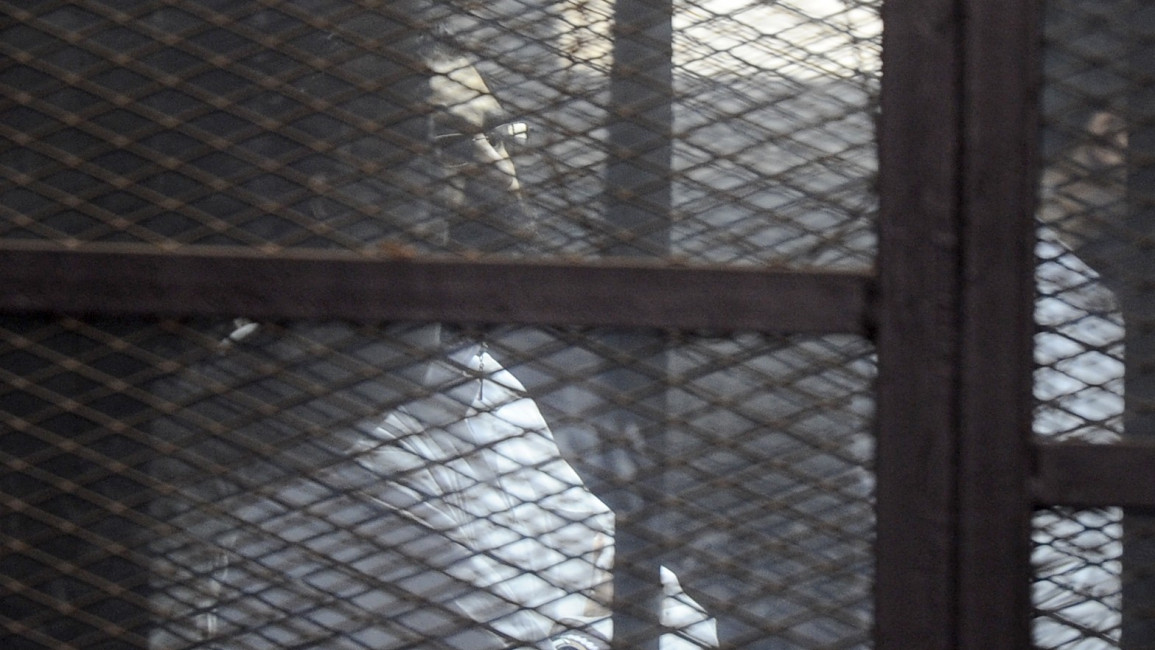Jailed Egyptian-British activist Alaa Abdel-Fattah finally visited by mother following concerns over his safety
Laila Soueif, the mother of prominent jailed Egyptian-British activist Alaa Abdel-Fattah was finally been able to visit him on Sunday, days after his family raised concerns about losing all contact with Abdel-Fattah.
The visit, the first since July 16, was confirmed by his sister Mona Seif in a post she wrote on Facebook.
Earlier Seif had said that all contact with her brother had been cut off since his mother’s last visit on 16 July. The prison administration claimed Alaa had rejected the visits.
Seif posted a summary of the 20-minute conversation between Abdel-Fattah and his mother as well as a letter he wrote about the conditions at the prison.
The facility, Seif said, was locked down during Eid Al-Adha, leading to frustration among prisoners who had hoped to be included in a recent presidential pardon.
“This caused frustration among them, leading some to contemplate mass suicide,” she wrote.
“The prison administration...cut exercise time and locked them in their cells most of the time…The situation was bleak and volatile. Alaa tried to negotiate with the officers that improving basic conditions for all prisoners might help, nothing exceptional just actually applying the prison regulations: radio for all prisoners as they were promised before Eid, more time out of the cell, [etc.],” she added.
When Alaa was denied the chance to talk to the state security officer in charge about his and his fellow inmates’ demands, he started to reject visits by the family, in a possible attempt to raise attention about these conditions.
“This is the current situation in Wadi El-Natrun prison complex: Desperate young men thinking of ending their lives….Officers running the place who actually don't have the authority to decide anything to do with those prisoners,” Seif said.
The prosecutor general’s office released a statement on 28 July, saying a chief prosecutor was sent to the correctional facility to see Abdel-Fattah and hear his demands.
“The prosecutor general’s statement was even more misleading than I dared to imagine".
Abdel-Fattah has been on a hunger strike for 121 days now, consuming only 100 calories per day.
“Alaa is [currently] much more fragile than he ever has ever been before,” his sister wrote.
Abdel-Fattah was sentenced in December last year to five years in prison after he was convicted along with two others of "broadcasting false news” among other charges.
Abdel-Fattah, 40, a blogger and hero of the 2011 Egyptian revolution, is serving five years in jail for "broadcasting false news" after he shared a Facebook post. Rights groups denounced his trial as unjust and Amnesty International considers the computer programmer, who was convicted in December after being held for over two years, a prisoner of conscience. Abdel-Fattah was previously imprisoned between 2013 and 2019 and was not out long before being rearrested.
He acquired UK citizenship in April this year from inside prison, through his British-born mother.


![President Pezeshkian has denounced Israel's attacks on Lebanon [Getty]](/sites/default/files/styles/image_684x385/public/2173482924.jpeg?h=a5f2f23a&itok=q3evVtko)



 Follow the Middle East's top stories in English at The New Arab on Google News
Follow the Middle East's top stories in English at The New Arab on Google News


